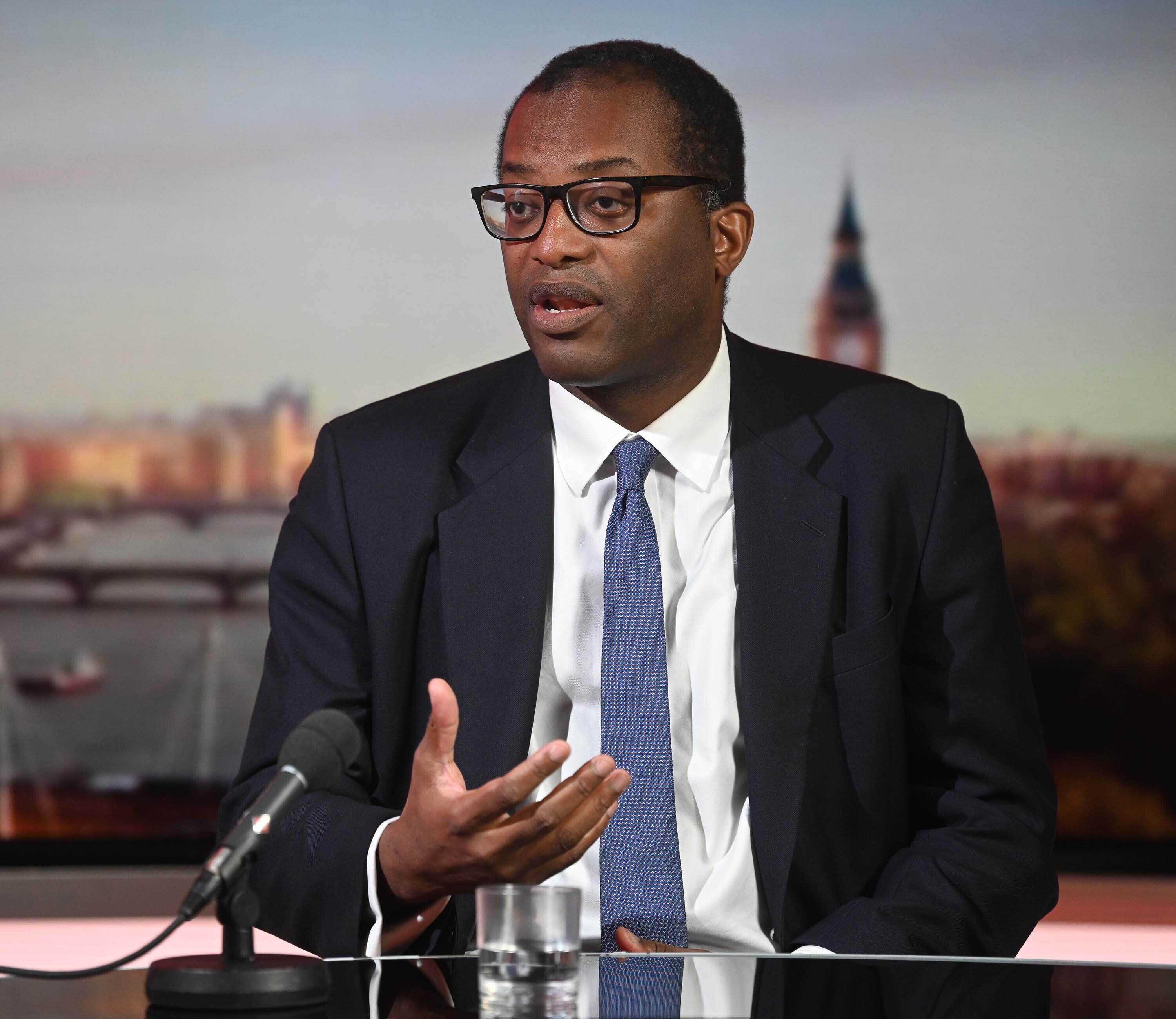Government splits are starting to emerge – and they’re only going to get worse
No 10’s public backing for Kwarteng in the row with the Treasury is evidence of an increasing Team Boris/Team Rishi divide, which – for a government without a lot of money to spend – will only deepen, writes Sean O’Grady


Just like real wars, Whitehall briefing wars come with varying degrees of intensity. Usually it’s just a few hand grenades lobbed over the departmental wall: an anonymous disparaging remark about the disputed genesis of some unworkable policy, or the prospects of a beleaguered colleague in a looming ministerial reshuffle, say. The conflict between the Treasury and the business department has escalated with remarkable speed.
Well within 45 minutes of the end of business secretary Kwasi Kwarteng’s appearance on BBC One’s The Andrew Marr Show on Sunday, allies of the chancellor had launched weapons of mass destruction at Kwarteng, telling the rolling news broadcasters that the poor chap was making it up as he went along. Hunkering down in his bunker, Kwarteng fired back, but the Treasury went nuclear, accusing Kwarteng of “sauntering in” to a meeting without having done his paperwork (sounds familiar).
Coming under such heavy Treasury bombardment, Kwarteng felt the need to call in a close political ally, and so the hotline to Marbella was activated. No 10 soon let it be known that Boris Johnson was on Kwarteng’s side, and that Rishi Sunak would “have to back down”. Heavy industry, begging for help over escalating energy bills, will get financial assistance. Or at least that’s the line for today.
What to make of this?
Harmonious governments in good times tend not to engage in such acts of internecine aggression, but these are not easy times. The tensions – part personal, part ideological – between the leading members of the government are becoming visible to the public, and will continue to do so because the financial pressures aren’t going away (unlike the EU workers, who are).

These public rows are doubly unfortunate because the voters traditionally dislike divided political parties, for the obvious reason that, if they cannot run their party and agree among themselves, there’s not much chance they can run the country. In opposition, forms of words and creative ambiguity can get a beleaguered leader or shadow minister out of trouble; in office, decisions tend to be more binary.
The worst split of all, and one that always destabilises an administration, is between chancellor and prime minister, and there seems little genuine affection, sense of comradeship or common political philosophy between Sunak and Johnson. Sunak seems fundamentally and ideologically to be a Thatcherite, while Johnson is more obviously a populist, and much more open to intervention in industry – a “Brexity Hezza” as he once described himself (referring to the pragmatic Michael Heseltine, the man who brought Margaret Thatcher down).
In the overwhelming emergency of the pandemic, prime minister and chancellor could agree on a free-spending, big-borrowing programme of support, backed up by easy money from the Bank of England. Those days are drawing to a close. They are starting to bicker about everything from the scheme to build a new royal yacht Britannia to the price of gas. Sunak has established a separate personal PR operation in No 11. Ambitions and egos are jostling.
Tough choices in government, such as whether to subsidise the steel, concrete and ceramics industries, are made easier if there’s plenty of money about. With the economy suffering from a lack of workers, it is already a “shortage economy”, with incipient inflation and shaky public finances being the more obvious symptoms of a deeper malaise. As a result of Covid and Brexit, the UK economy will probably be smaller than it was before the pandemic.
Taxation, spending and borrowing are running at record levels, and soon a rise in interest rates will begin to add to the cost of servicing the national debt, and will depress business and consumer confidence, and thus tax revenues. Demands on public spending from social care, the NHS, defence, education, and “levelling up”, for example, are already intense, and are now being added to by an unplanned need to provide support for industry because of labour shortages and the energy crisis.
The Treasury wants to start the long process of fixing the public finances, and points out that many companies, during the financial crisis and the pandemic, had to try to support themselves; the business department and No 10 want more “mitigations” to continue, and are more laid back about the public finances.
The lesson of history is that No 10 usually prevails in such Whitehall skirmishes, rightly or wrongly, in the short run; but if the choices a prime minister makes become obviously wrong, then the pressures on their leadership can become much more intense, and sometimes unbearable. With the Budget approaching on 27 October, and every sign that the stresses on the economy will intensify, the tensions and the briefings are going to grow ever more hostile.
Join our commenting forum
Join thought-provoking conversations, follow other Independent readers and see their replies
Comments
Bookmark popover
Removed from bookmarks